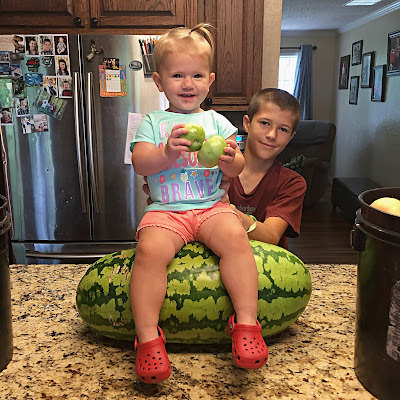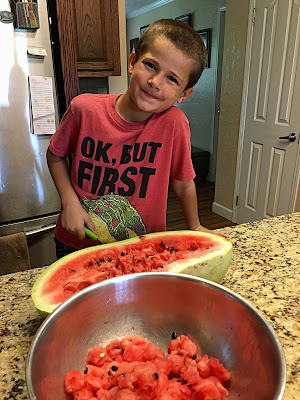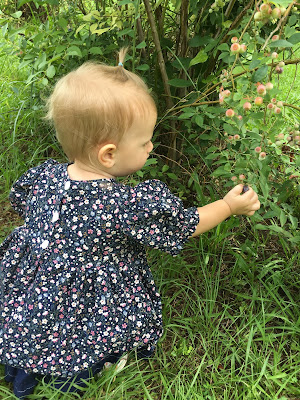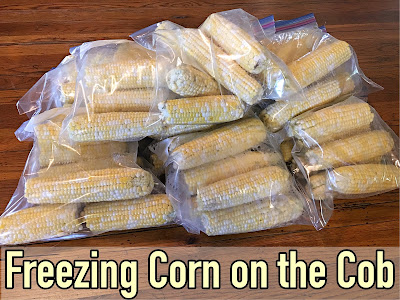There's no denying it, times are strange and uncertain. Life may or may not ever return to the way it once was. It could be understandably easy to sink into a hole of despair. Or you can do like our family is doing and prepare. Who knows what the future holds. I would like to think one day we will wake up and this insanity called COVID-19 will be a faint memory. But, in all likelihood, there's a good chance, this global shutdown is going to last a while longer and have dire consequences for years to come.
Our family has decided to be proactive and focused on creating solutions to our current concerns than wallowing in self-pity. I'm not going to lie, it's hard for me to keep on keepin' on. Some nights I lie awake sick, thinking about how horrible this world has become, and that I have ten children who have to figure out how to survive in it. But, I know that God is going to use all of this for the good of His people. I also know it would be a major disservice to the Lord, my family, and myself if I remained in a depressed state of mind. Instead, I'm hoping to be an example to my children on how to adjust, pivot, and roll with the punches. We don't have to succumb to this craziness, we can rise above it, and become better people as a whole.
Our family is making some consorted efforts to create practical solutions to help us thrive during this time. We want our children to feel safe and know they do not have to worry how their needs will be met. We want to shelter them from the raging storm whirling around outside our four walls. They deserve it, and my husband and I will do whatever it takes to make sure our children are well protected. The following is a more detailed synopsis of exactly what we are implementing within our family dynamics to help us survive the dire circumstances we currently find ourselves in.
Preparing For Lean Times
- Reevaluating Needs vs. Wants:
- Now is not the time for frivolously spending. We are praying through each and every purchase whether food, clothing, or any other item to determine if it is a necessity.
- We are making purchases which help to reduce our over all spending, such as our new clothe line.
- We are limiting our shopping in person as well as online, making sure every purchase is an essential item that our family truly needs.
- Intentional Sustainability:
- We have increased the size of our garden with plants and fruit bearing trees/bushes. We are also pursuing meat chickens and other sources for food supply; such as inquiring of neighbors and friends if they know of outlets where we can find fruit trees to pick from. So far we have found a new free source for crab apples and someone who is getting rid of their canning jars.
- As cliche as it may sound, Reduce, Reuse, Recycle is at the core of our daily life. We are reusing everything that we possible can ~ just the other day I salvaged a set of stand alone stairs to use as a planter station for my herbs. ALL leftovers are being eaten. Of course cloth for as many things as possible including diapers and napkins. We are trying to become a no waste family.
- After a month of searching we were able to place our yearly co-op order. While this does not sustain us indefinitely it will meet our dry goods needs for the next year, reducing our need to purchase these items from stores or online. We've also managed to place our yearly order for maple syrup which we cook with and we're working on our yearly order for honey. All of these bulk purchases safe us money in the long run.
- Immune Health:
- We are focusing on eating clean. Whole foods to promote a healthy immune system which can ward of disease and infection as well as give us the energy to pursue our many avenues of self-sufficiency.
- We are removing as many toxic substances as possible from our home from cleaning products to beauty products. There was a time we had minimal of these items, but I guess you could say I became negligent. I feel now is just as good as any time to get back on that band-wagon, it's really not that hard and it's certainly more affordable.
- We are making sure we have a decent stock of herbs, essential oils and vitamins to help combat ailments. We have always done this, but I guess you could say we are upping our game. We haven't been to the doctor for sickness in so many years I couldn't even tell you exactly the last time. But, the key on this one is to be proactive with necessary supplies so that when there's a need to treat a health situation, you are prepared.
Ultimately, God is in control. But, we can be used by God to fulfill His will. Having a plan and being intentional to work towards those goals is a much more positive way to use our time these days; rather than just hiding inside worrying. It is my deepest desire that throughout these crazy times our family would uphold God's word, look for the Lord's wisdom and knowledge, and not be wasteful with our time here on Earth. We are alive for a reason. None of *this* has caught God off guard. He is still in the business of providing for His people and He will continue to do so until the end of time.
With Love & Hope,
Jennifer

































